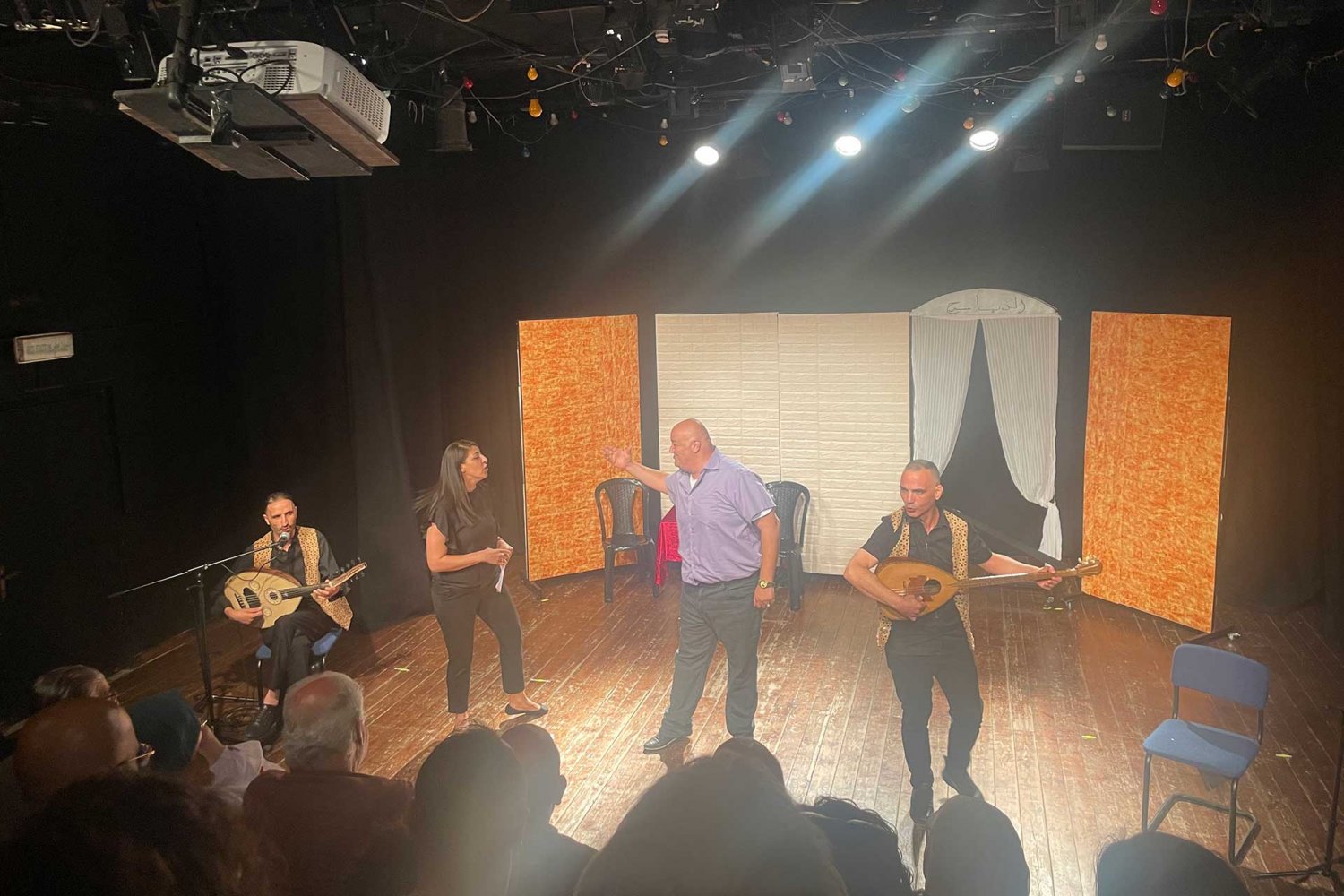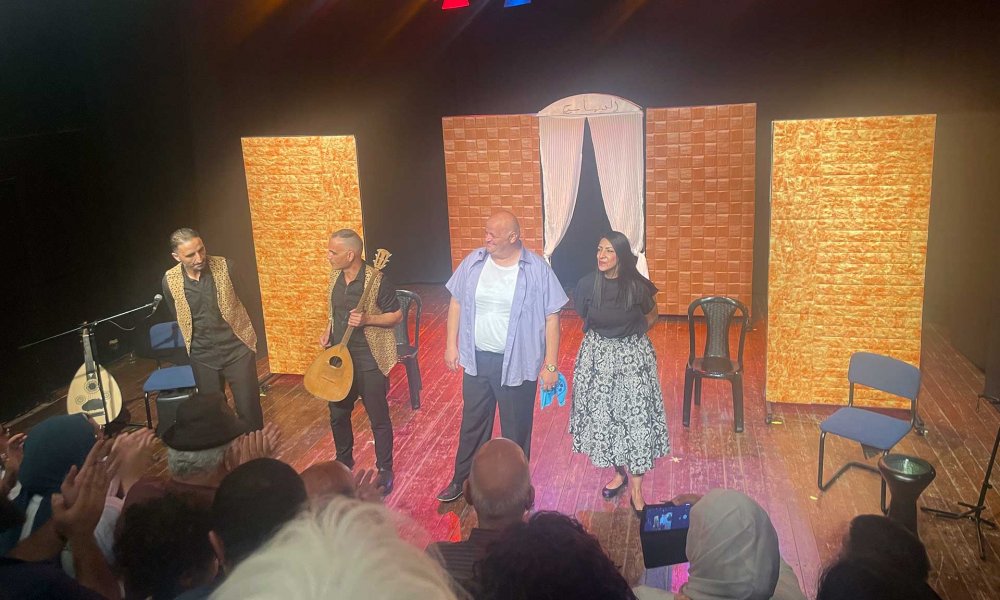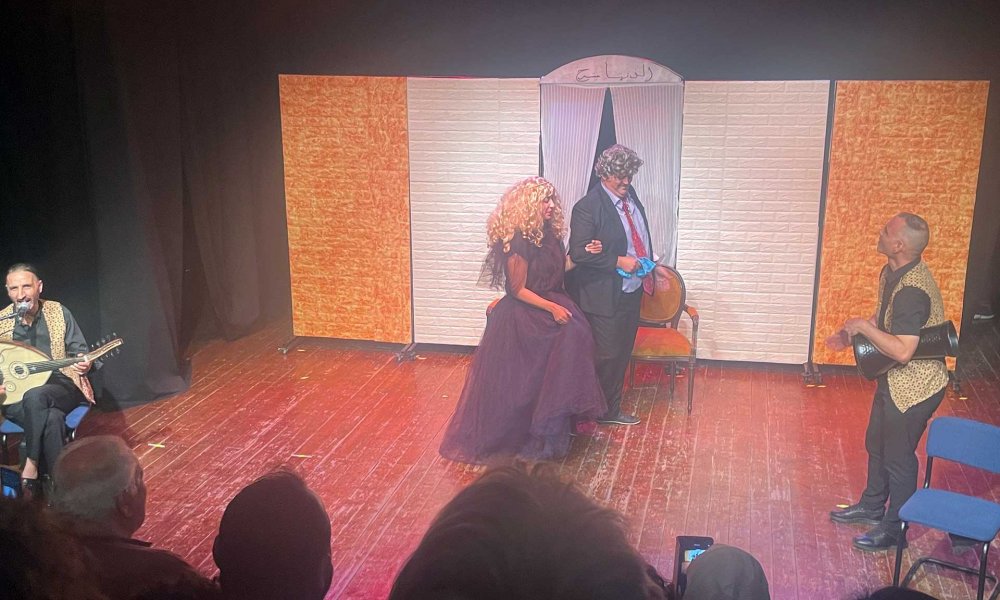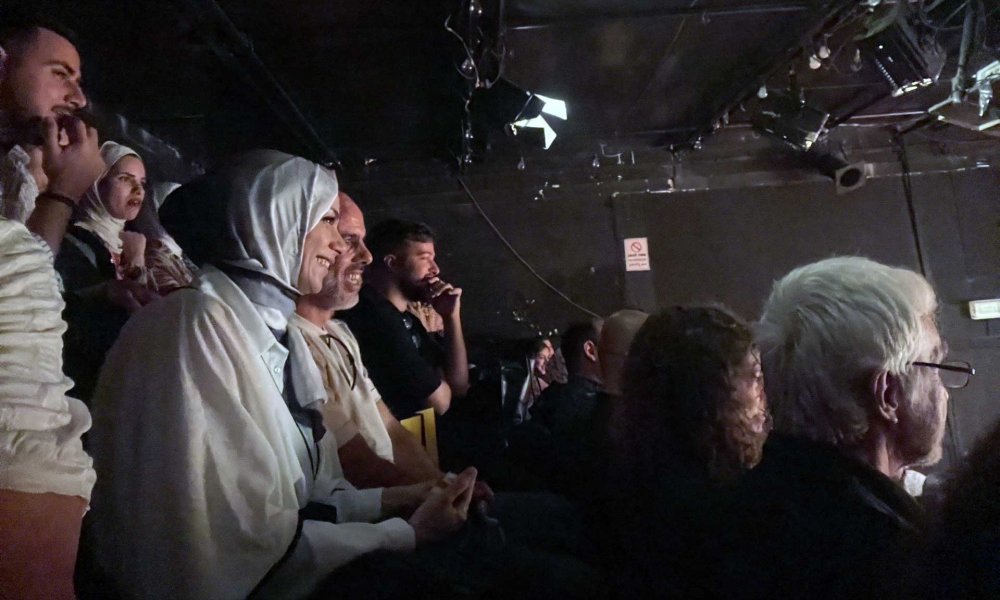As far as Raed is concerned, “You cannot separate art from the street. Art is the street.” Ten days before the opening night, Raed shared that his big dream is “to turn Jerusalem from a stressful place to an artistic city,” he said.
Raed started the Jerusalem Art House initiative about three years ago, during the coronavirus pandemic, in the Bab Hutta neighborhood. The initiative is mostly promoted online and is open for those (especially Palestinians in Jerusalem) who are interested. One of the ideas of this project was the show “Looking for a Talent,” where he would roam the streets of the Old City, looking for local talent and recording his interactions with random people. In total, he recorded up to six episodes, by the end of which his initial belief was proven beyond doubt—which is that “Jerusalem is full of amazing talent . . . The porter of Musrara has brilliant circus skills, and the famous kebab shop owner of Khan al-Zeit is actually a remarkable oud player.”
Raed insists that art cannot be boxed in a theater room or locked in a person: It is a living thing that breathes despite everything. In the local context, he brings examples from the Old City, demonstrating that the people in the city have a myriad of artistic and musical talents that casual observers can never discern.
The role of Palestinian artists is crucial in identifying obstacles to authentic self-expression, as “The World Is a Stage” does, and in nurturing hope that change is possible despite relentlessly challenging situations.
The play is set to be performed again at El-Hawakati National Theatre in Jerusalem on July 13, 2024.




